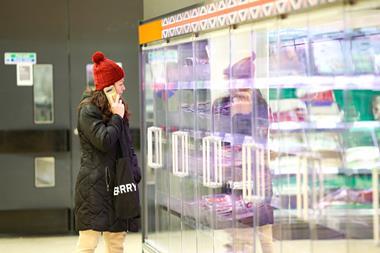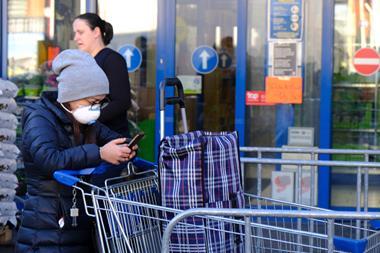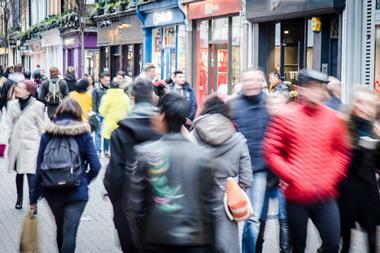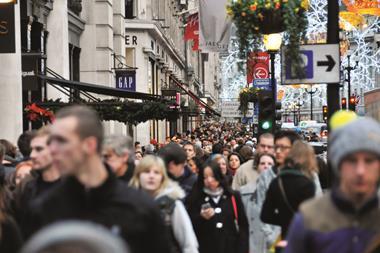Retail sales in April registered a record decline as comparatively subdued Easter grocery sales compounded non-essential shop shutdowns.
Total retail sales plummeted 19.1% year on year in April against an increase of 2.4% during the same month the previous year.
According to the BRC-KPMG Retail Sales Monitor, this represents the worst decline since records began in January 1995. This fall was sharper than the three- and 12-month average falls of 7.5% and 2.3% respectively – both of which were record declines in themselves.
Stripping out declines from stores that have been mandated to close by the government due to the ongoing pandemic, UK like-for-like sales rose 5.7%, primarily due to online sales growth.
But without this measure, in-store sales of non-food items in the three months to April dropped 36% overall and 17.3% in like-for-like terms, below the 12-month average decline of 11.5%.
By contrast, over the three months to April, grocery sales increased 4.5% overall and 6% on a like-for-like basis. Although this is higher than the 12-month average growth of 1.6%, sales for the month of April alone fell year on year due to more subdued sales over the Easter bank holiday weekend.
Non-food online penetration jumped to 69.9% this April, in comparison with 29.9% over the same month last year.
BRC chief executive Helen Dickinson said: “The proportion of goods purchased online rose sharply, with products such as games consoles, bicycles, office equipment and haberdashery all high on the list. However, even the dramatic rise in online sales could not make up for the loss of in-store purchases.
“Coronavirus has accelerated many of the trends seen prior to the outbreak and it is likely that, as the lockdown wears on, these new shopping habits – such as the trend towards online purchases – will become more entrenched for many consumers.
“While retailers have a lifeline through various government loans and support, they need to know this will continue beyond the current deadlines. Government should also step in to support on rents for those retailers still facing rent costs, despite little or no sales. Without this, businesses may be forced to close – threatening jobs and further harming local communities.
“Monday’s recovery strategy was an opportunity missed to provide a clear and detailed roadmap, outlining when and how shops will reopen after June 1, so that retail can help get the economy moving and the public can get all the goods they need.”
KPMG’s UK head of retail Paul Martin added: “Aside from ‘essential’ retailers still operating physically, consumers have had little alternative but to log on, and online sales were up nearly 60%.
“As you’d expect with consumers staying at home, the focus has been on home-related goods, as well as trying to keep entertained. Computing equipment and household gadgets, as well as toys and baby equipment, were among the categories that performed strongly. Meanwhile other non-food categories, especially fashion, experienced a significant decline.
“The disparities in retail continue, not only between ‘essential’ and ‘non-essential’, but also between those with an online channel and those without. Eyes are firmly fixed on how the easing of restrictions will impact consumer spending going forwards, with the acceleration of online sales likely here to stay and overall demand in certain categories, like fashion, remaining subdued for some time.”


























No comments yet